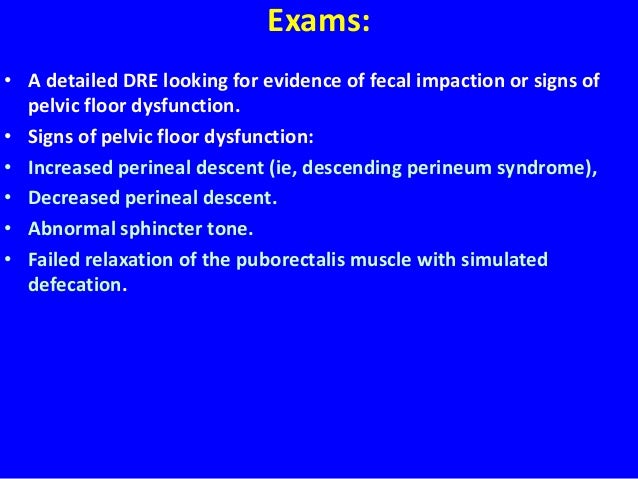Pelvic Floor Dysfunction Bloating

Pelvic floor dysfunction usually does not occur due to one time events such as childbirth.
Pelvic floor dysfunction bloating. Symptoms of pelvic floor dysfunction but not ibs appear to be especially important in the genesis of abdominal distension in patients with ed. While we also offer surgery in contrast to some other institutions we recommend this approach for only a tiny fraction of patients with chronic constipation. This condition is associated with recurring pain in your bladder and a frequent need to urinate. Pelvic floor muscles that are too tight can lead to nonrelaxing pelvic floor dysfunction.
We recommend pelvic floor abdominal physical therapy to many of our patients who are struggling with pelvic or abdominal pain urinary incontinence pain during intercourse or sexual dysfunction constipation or diarrhea bloating and many other health concerns. Symptoms associated with irritable bowel syndrome bloating constipation or diarrhea can be a source of pelvic pain and pressure. Treatment options can include. Pelvic floor dysfunction is the inability to control the muscles of your pelvic floor.
Your pelvic floor is the group of muscles and ligaments in your pelvic region the pelvic floor acts like a. The presence of irritable bowel syndrome ibs 46 was a significant predictor of bloating p 0 001 but not distension. This should identify a history of difficult deliveries. This can cause pelvic floor dysfunction due to pelvic floor muscle incoordination or overactive pelvic floor muscles as well as a rectal prolapse.
Symptoms include abdominal bloating pain in the lower abdomen from a chronic stretch on the fascia no urge to defecate or obstructed urination. Men can also experience pelvic floor dysfunction. Although pelvic floor dysfunction is common biofeedback therapy is not widely available within the united states. Painful bladder syndrome interstitial cystitis.
An important aspect of the history includes a thorough obstetrical child bearing review in women. Childbirth menopause and your pelvic floor. However childbirth repeated heavy lifting and hip or back injuries can cause your pelvic floor to weaken increasing the likelihood of pfd. There are different types of pelvic floor dysfunction and symptoms can vary.



















